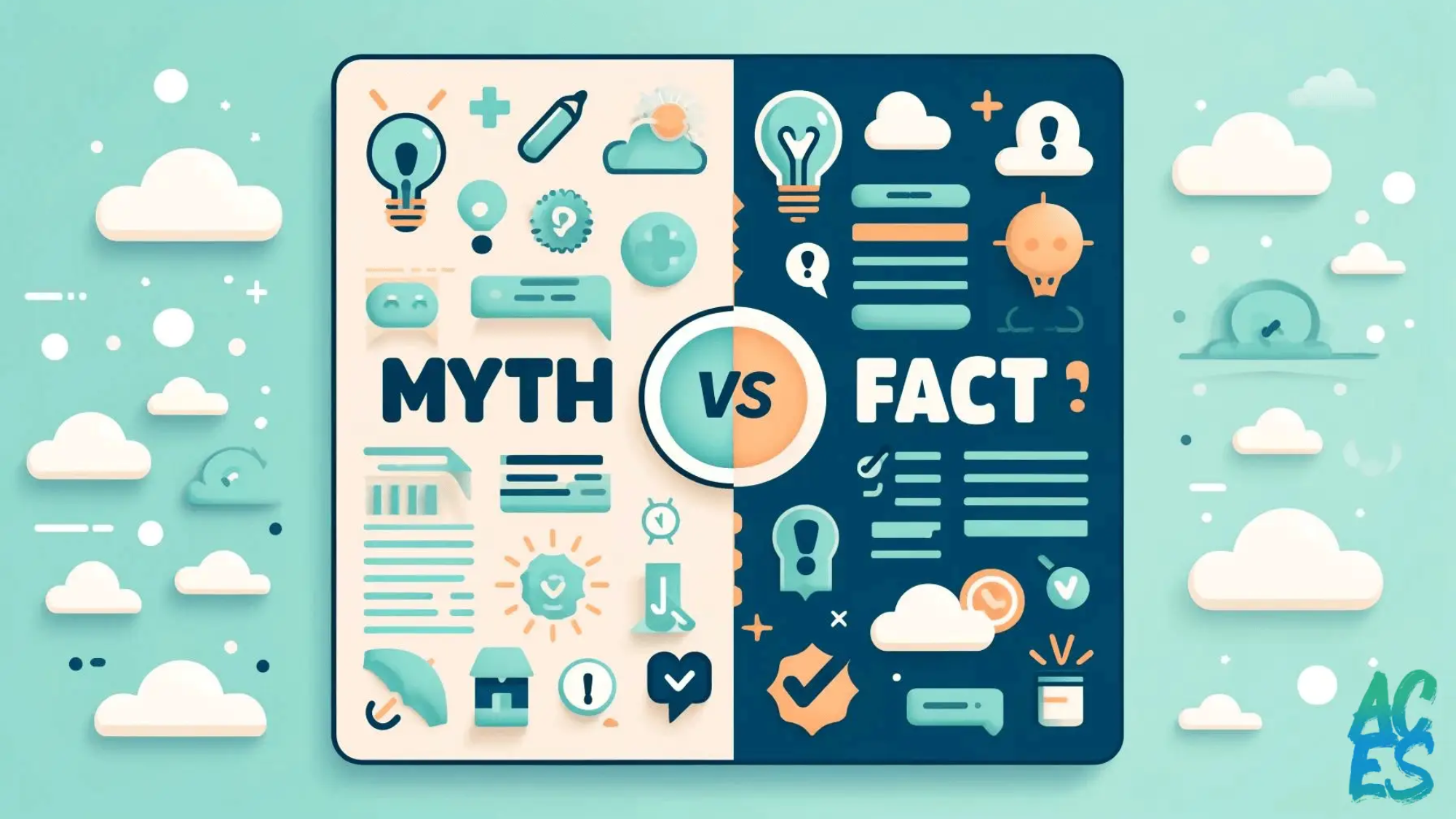In the realm of mental health, misconceptions abound, often leading to stigma and misunderstandings. Today, we aim to debunk some of these common myths and provide a clearer understanding of mental health issues, while sprinkling in a bit of humor to keep things light.
Myth 1: You Can Just “Snap Out Of” Depression or Anxiety
One of the most pervasive myths about mental health is the belief that individuals can simply “snap out of” depression or anxiety. This misconception undermines the serious nature of these conditions. Depression and anxiety are not just fleeting feelings of sadness or worry but are complex disorders that often require professional treatment. Just like any other medical condition, mental health issues need proper care and support. Expecting someone to overcome them through sheer willpower is like telling someone with a broken leg to just walk it off. Finding the right help, perhaps from a dedicated psychiatrist for anxiety and depression in the Orlando area, is key. It simply doesn’t work that way [1].
Myth 2: Only Adults Suffer From Mental Health Issues
Another common myth is that mental health problems only affect adults. In reality, children and adolescents are also vulnerable to these issues. Mental health challenges can significantly impact young people’s development, education, and social interactions, sometimes presenting as aggressive or disruptive behaviors or related to conditions like Autism [Link 4]. Recognizing and addressing mental health issues early in life is crucial for long-term well-being. By acknowledging that young people can experience these problems, we can better support them and provide the necessary resources and interventions. Think of mental health care for kids as the emotional equivalent of regular pediatric check-ups—it’s essential for their overall growth and health [2].
Myth 3: Mental Health Issues Are a Sign of Weakness
There is a damaging belief that struggling with mental health is a sign of personal weakness. This stigma prevents many individuals from seeking help, fearing judgment or ridicule. However, mental health conditions, including things like PTSD or Bipolar Disorder, are medical issues, not reflections of character or strength. They can affect anyone, regardless of their background or personality. Seeking help for mental health concerns is a courageous and important step toward recovery, not an admission of defeat. It’s like saying needing glasses is a sign of weak eyes—nobody thinks that, so why should it be different for mental health? [3]
Myth 4: Medication Is the Only Treatment Option
Many people believe that medication is the only way to treat mental health issues. While medication can be an effective part of treatment for some individuals, it is not the only option. Therapy, lifestyle changes, and other interventions can also play significant roles in managing mental health conditions, such as OCD or Eating Disorders. For example, cognitive-behavioral therapy (CBT) has been proven effective for many disorders, and incorporating healthy habits like regular exercise and proper sleep can also make a difference. A comprehensive treatment plan often includes a combination of these approaches tailored to the individual’s needs. Imagine treating mental health like a garden—you need a mix of sunshine, water, and good soil, not just one thing to help it flourish [4].
Myth 5: Mental Health Issues Are Always Visible
Some people believe that mental health issues are always obvious and easy to spot. However, many individuals with mental health challenges are skilled at hiding their struggles and might appear perfectly fine on the outside. Mental health is not always visible and can be as silent as it is debilitating. It’s like looking at an iceberg—what you see above the water is only a small part of what’s really going on beneath the surface.
Myth 6: Talking About Mental Health Makes It Worse
There is a misconception that discussing mental health issues can exacerbate them. In reality, talking about mental health can be incredibly beneficial. Open conversations can reduce stigma, provide support, and help individuals feel less isolated. It’s like venting a pressure cooker—talking can release some of the emotional pressure and prevent a bigger blow-up later on.
Myth 7: Therapy is Only for “Crazy” People
Many people believe that therapy is only necessary for those with severe mental health issues. However, therapy can benefit anyone, regardless of the severity of their condition. It can help with everyday stress, relationship problems, personal growth, and more. Therapy provides a space to talk openly and get professional guidance. It’s like going to the gym for your mind—everyone can benefit from a mental health workout [5].
Myth 8: People with Mental Health Issues Can’t Hold Down a Job
There’s a common misconception that individuals with mental health issues are unable to work or be productive. In reality, many people with mental health conditions lead successful and fulfilling professional lives. With the right support and accommodations, individuals with mental health challenges can thrive in the workplace. It’s important to challenge this stigma and recognize the potential of every individual [6].
Conclusion
Understanding and debunking these common myths about mental health is essential for fostering a more informed and supportive community. By challenging these misconceptions, we can reduce stigma, encourage more people to seek help, and promote a more compassionate approach to mental health care. Remember, mental health conditions are complex, but with the right support and treatment, individuals can lead fulfilling lives.
Seeking Support in Central Florida?
If you or a loved one in the Orlando, Lake Nona, Windermere, Winter Garden, or Winter Park areas are seeking support for mental health challenges like anxiety and depression, ACES Psychiatry offers specialized, compassionate care. We understand the unique challenges faced by individuals and families in our community. Learn more about our approach to Depression Treatment or Contact Us today to schedule a consultation.
Disclaimer: This blog post is for informational purposes only and does not constitute medical advice. Please consult with a qualified healthcare professional for any health concerns or before making any decisions related to your health or treatment.
References:
- American Psychological Association. “Depression.” Retrieved from American Psychological Association.
- National Institute of Mental Health. “Child and Adolescent Mental Health.” Retrieved from National Institute of Mental Health.
- Mayo Clinic. “Mental Illness: Symptoms and Treatment.” Retrieved from Mayo Clinic.
- National Alliance on Mental Illness. “Mental Health Medication.” Retrieved from NAMI.
- American Psychological Association. “Understanding psychotherapy and how it works.” Retrieved from American Psychological Association.
- Mental Health America. “Employment and Mental Health.” Retrieved from Mental Health America.





Truly am going trough this mental health issues depressed its effecting my life seriously i lost interest in my favourite activities football and interpersonal relationship unforgiven ruminating obsessed thinking violence intrusive thoughts triggered irritable outboust and easy angry sexual dysfunction
It sounds like you’re going through a lot, and it’s understandable that it’s affecting your life. You’re not alone—many people face similar struggles. Reaching out to a mental health professional can help you regain control and find joy in life again. Therapy, medication, or other treatments can make a real difference. Please consider seeking support; taking that step can lead to healing
Simply want to say your article is as surprising. The clearness to your publish is simply excellent and that i could assume you’re a professional in this subject. Fine with your permission allow me to snatch your feed to keep up to date with forthcoming post. Thanks a million and please keep up the rewarding work.
Loved this article!
This is so helpful Thanks!
Write more, thats all I have to say.You clearly know what youre
talking about.Love it.